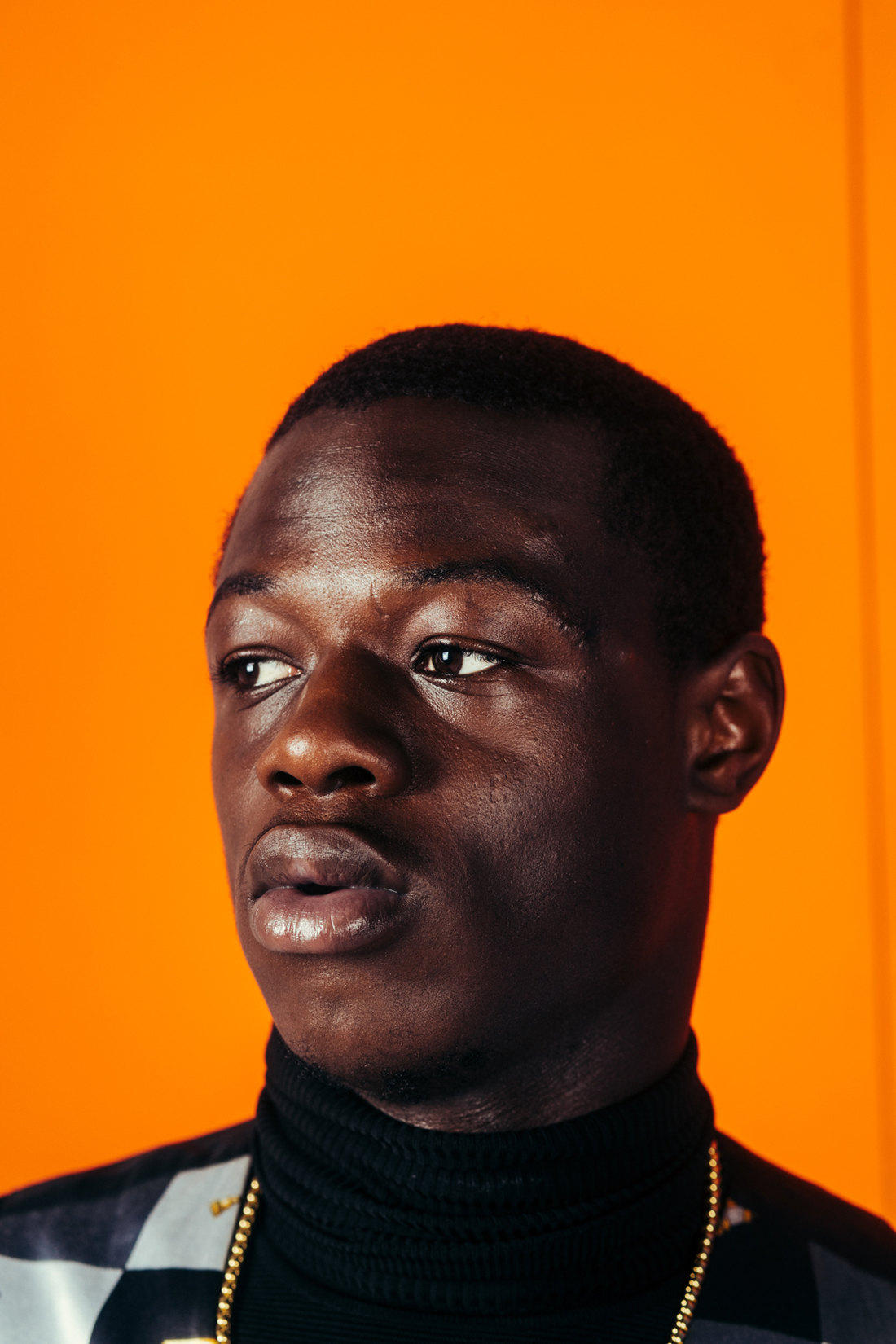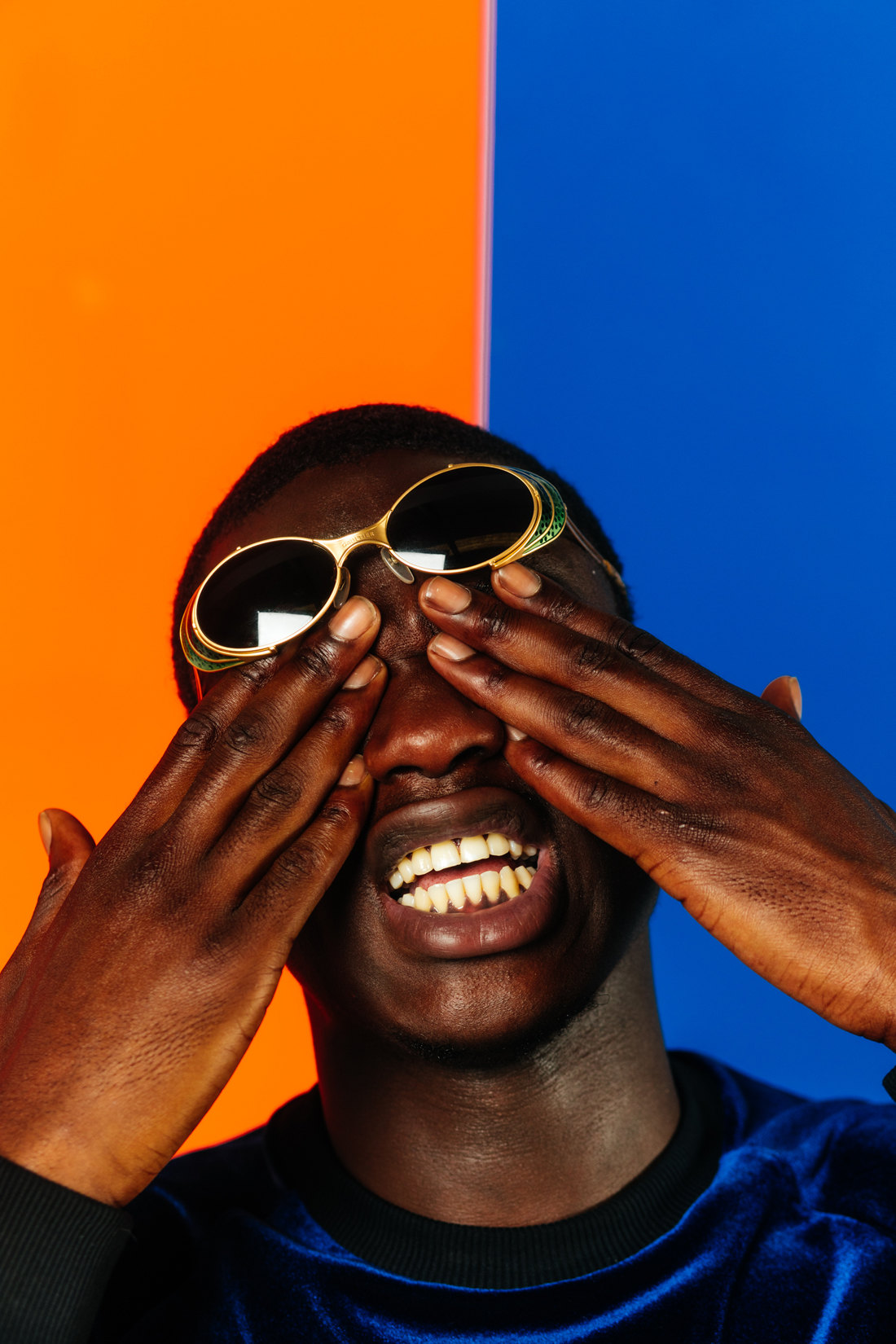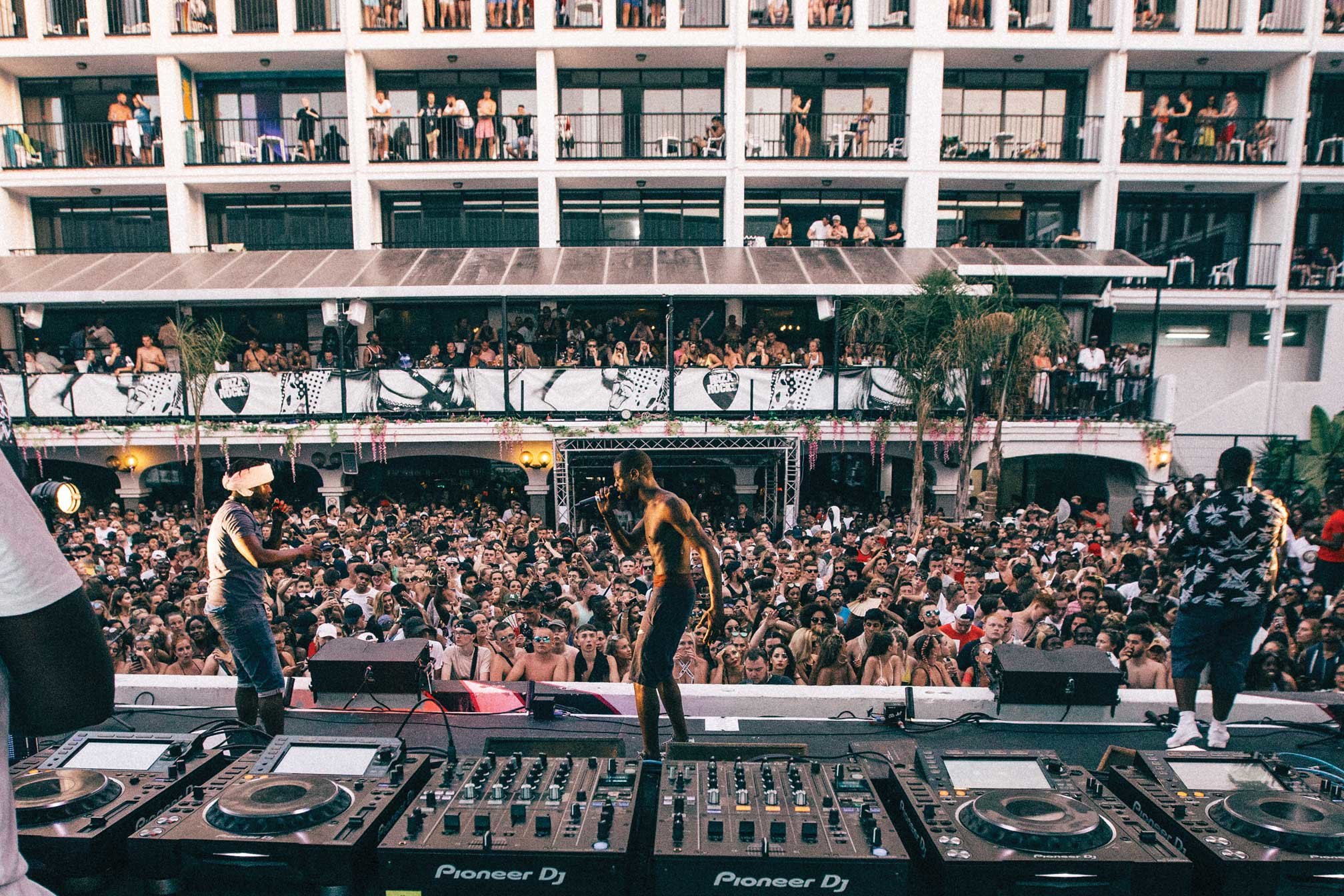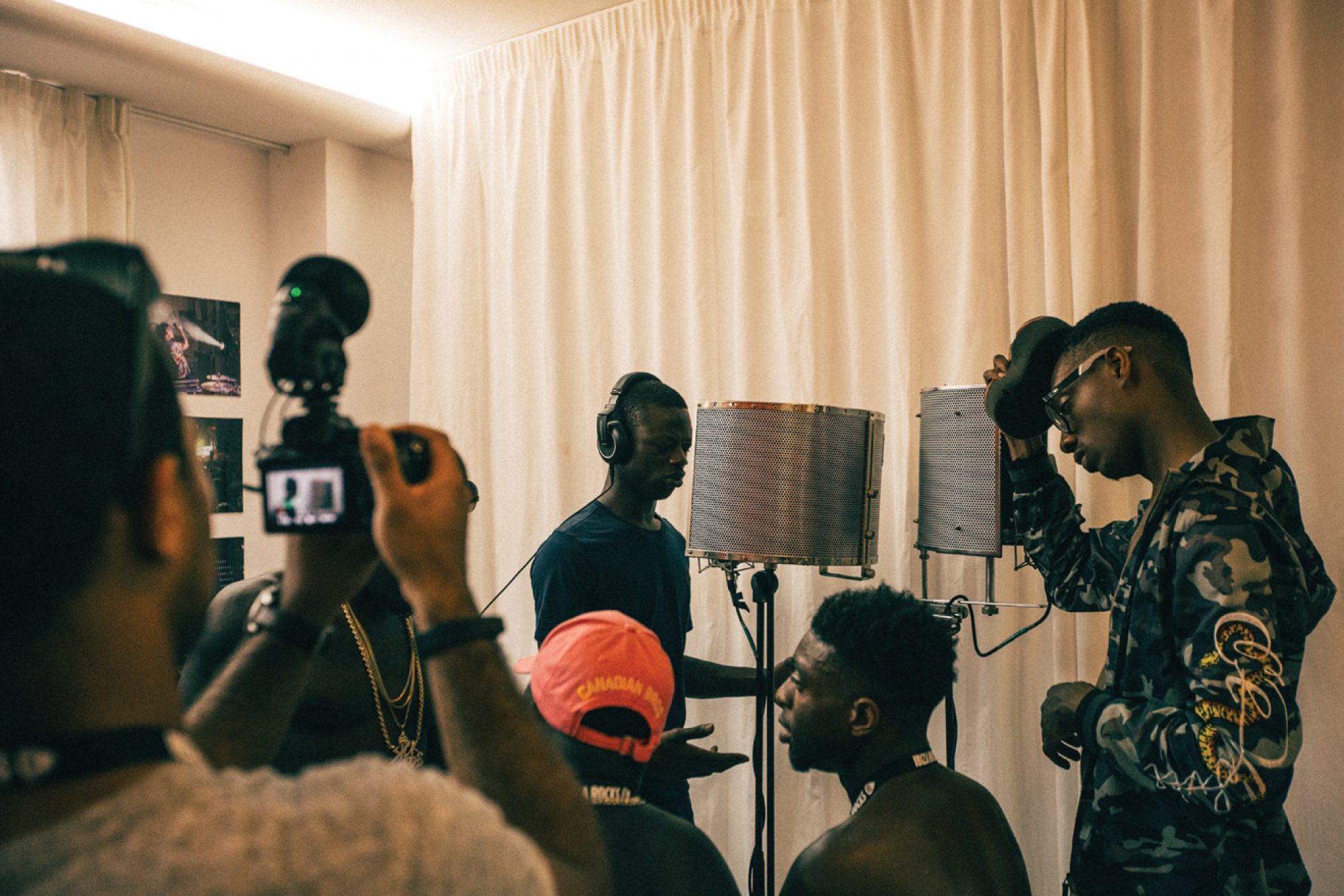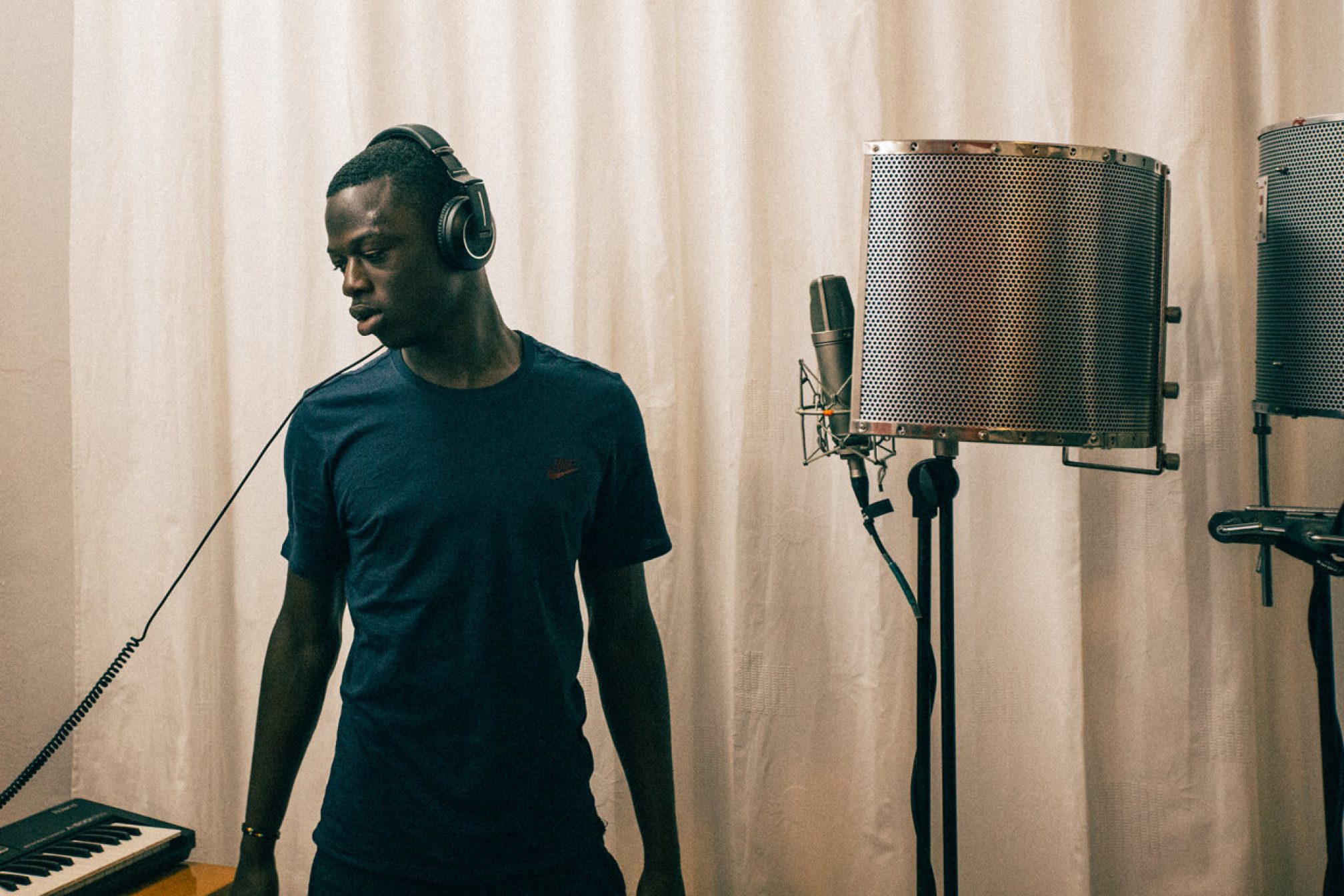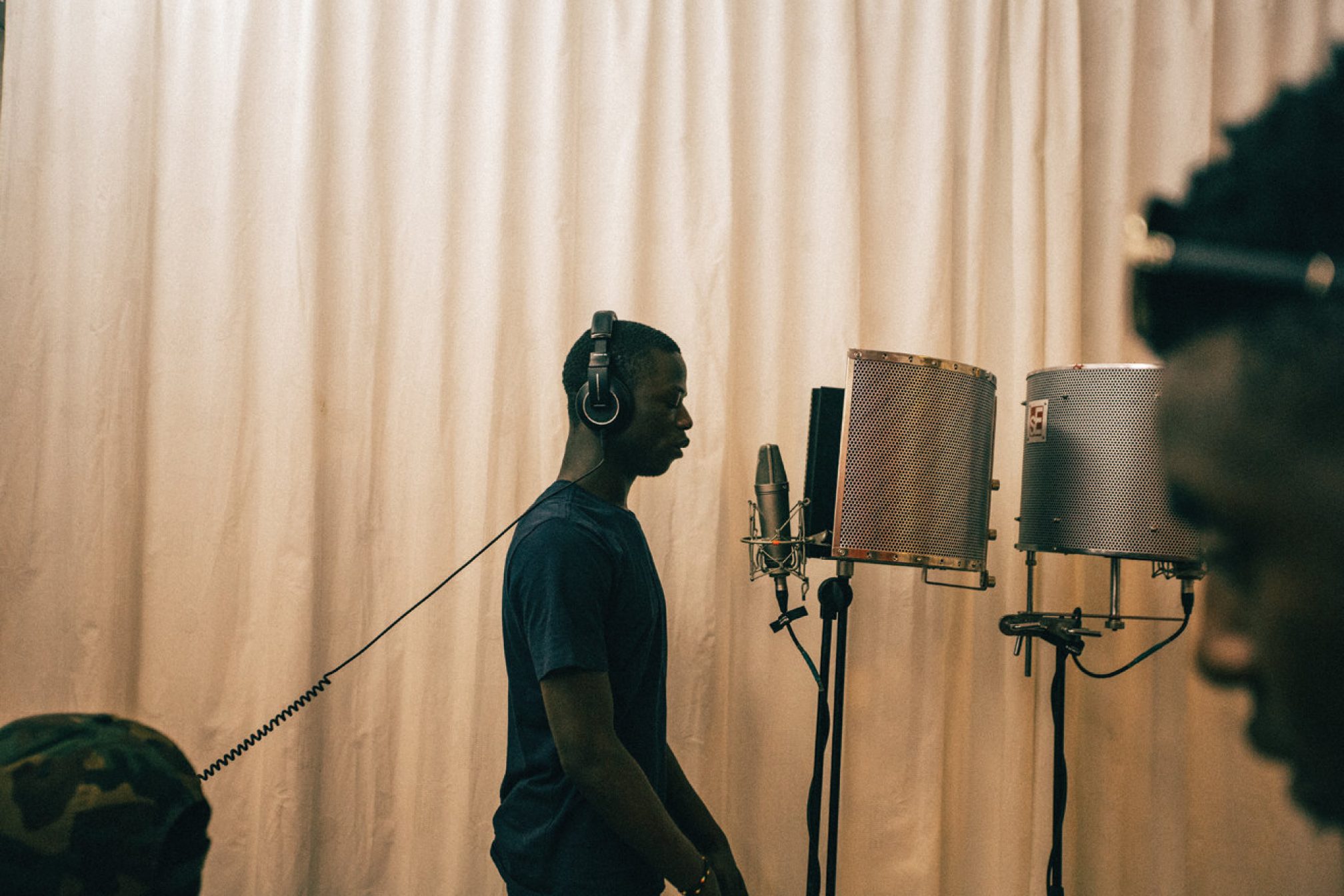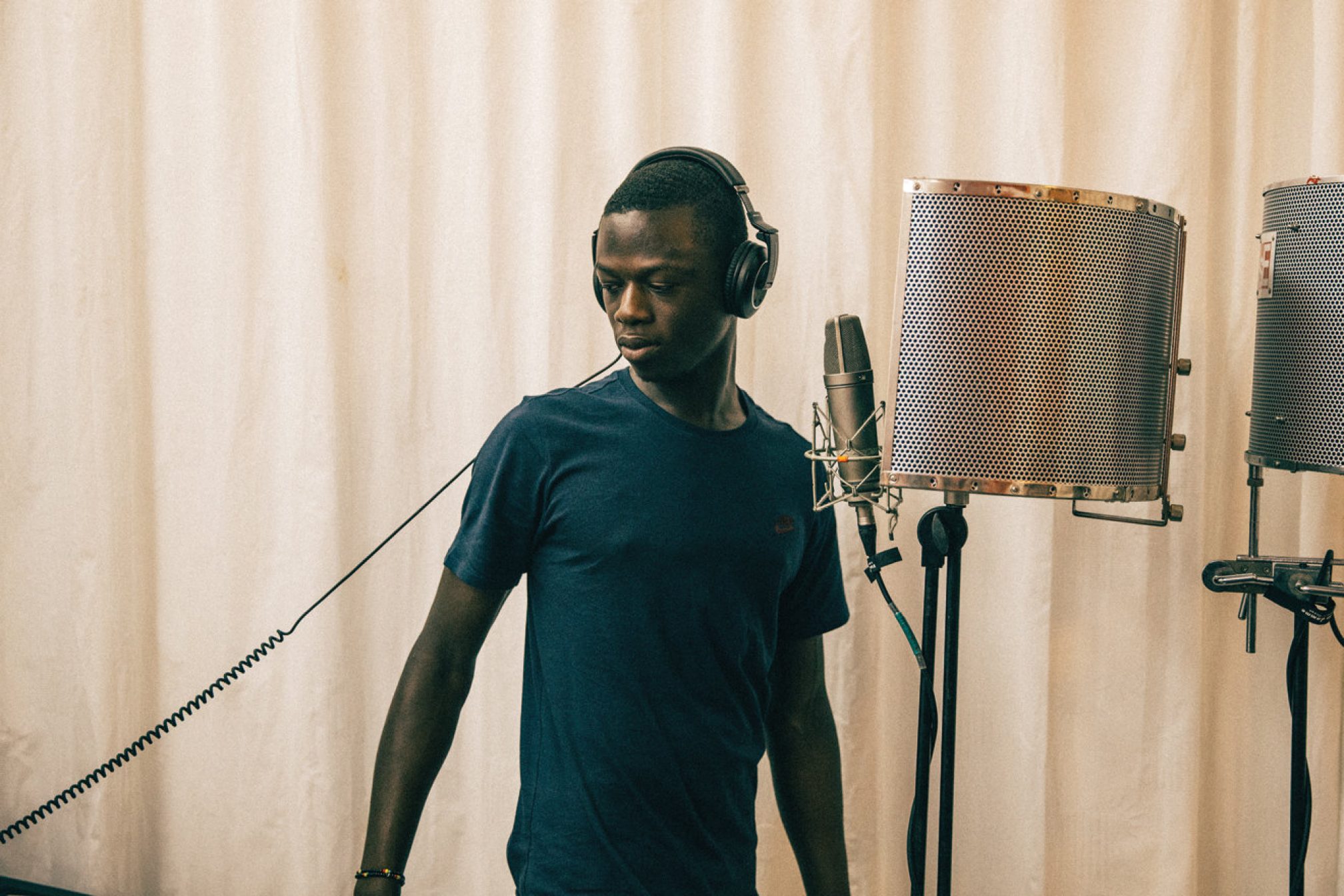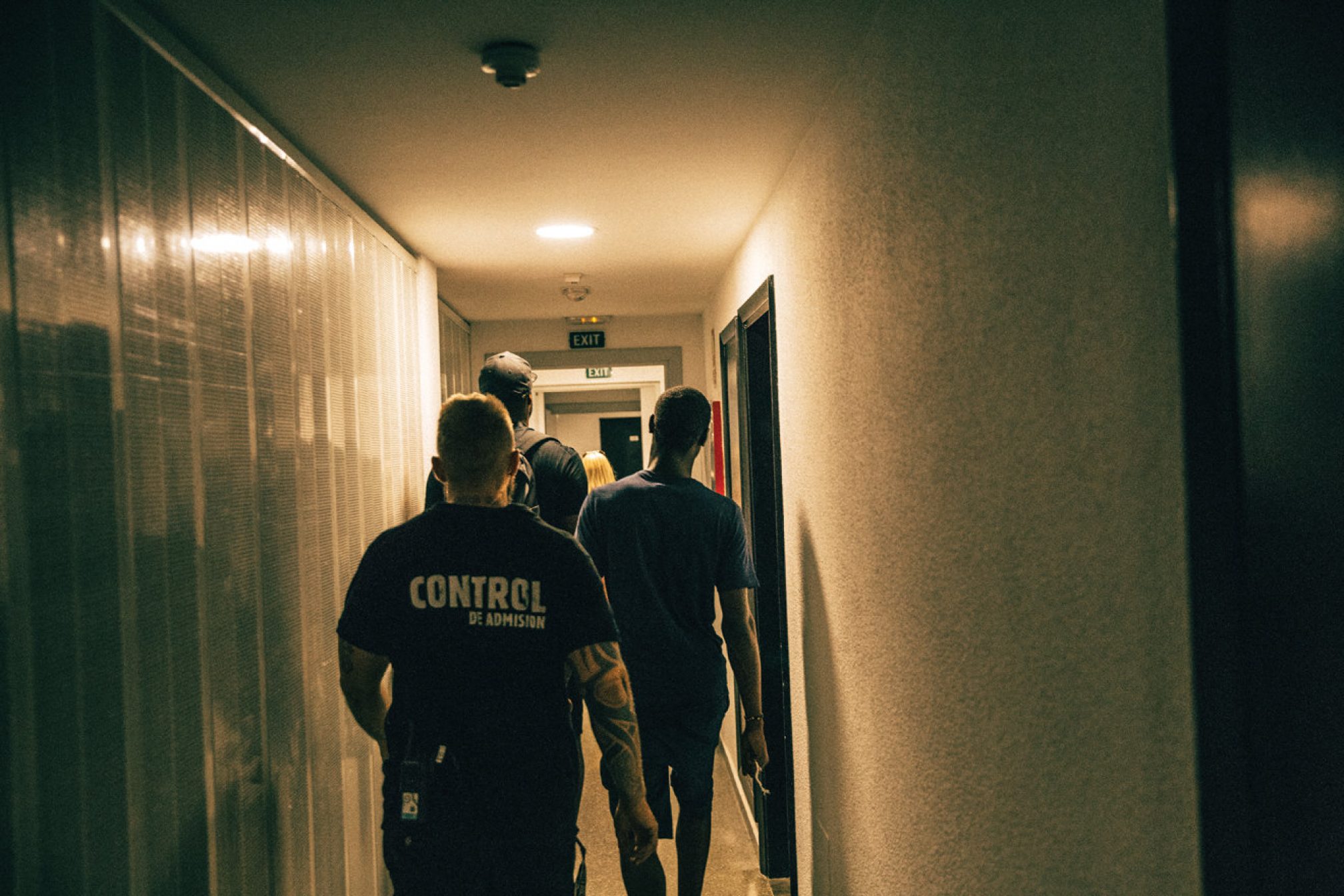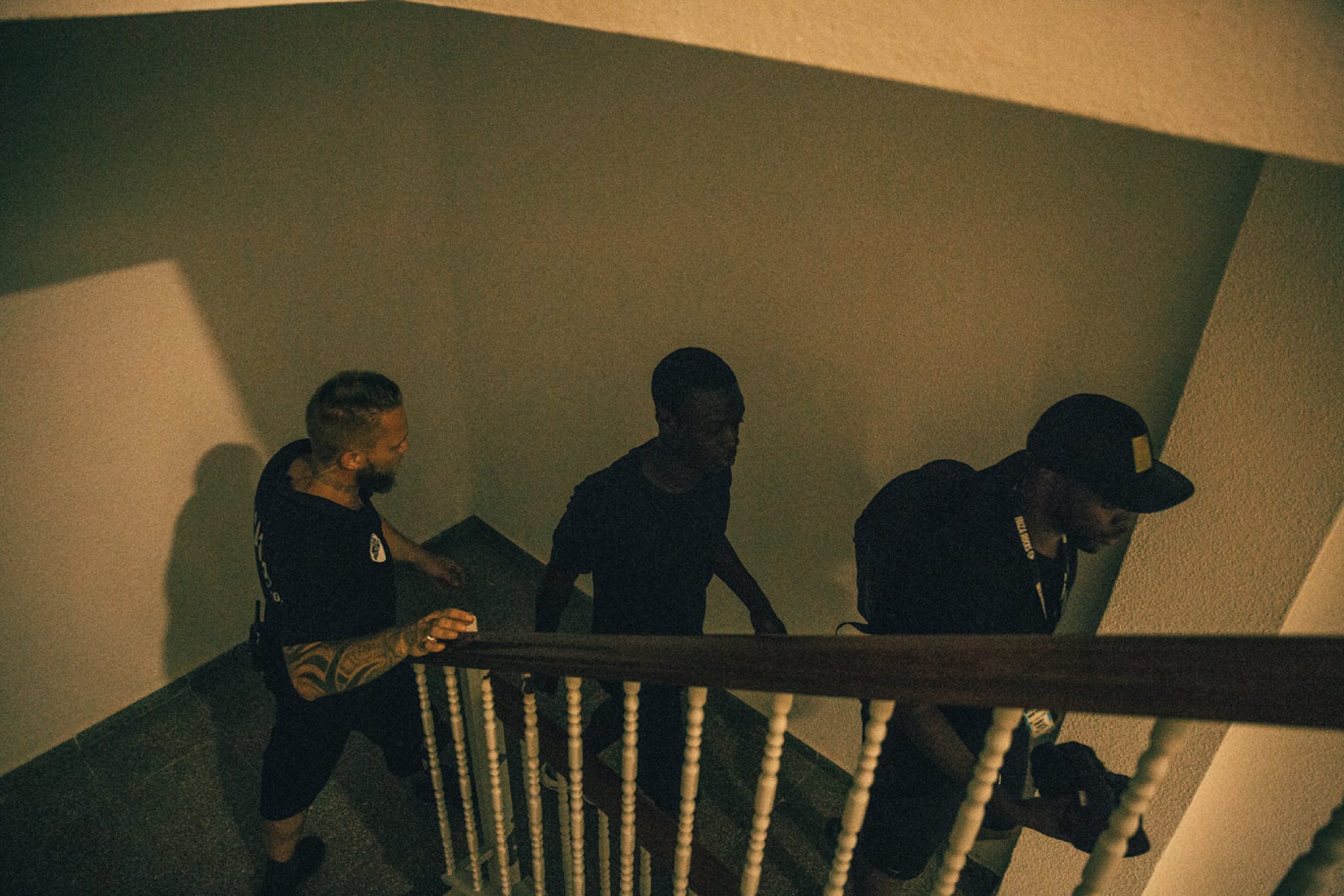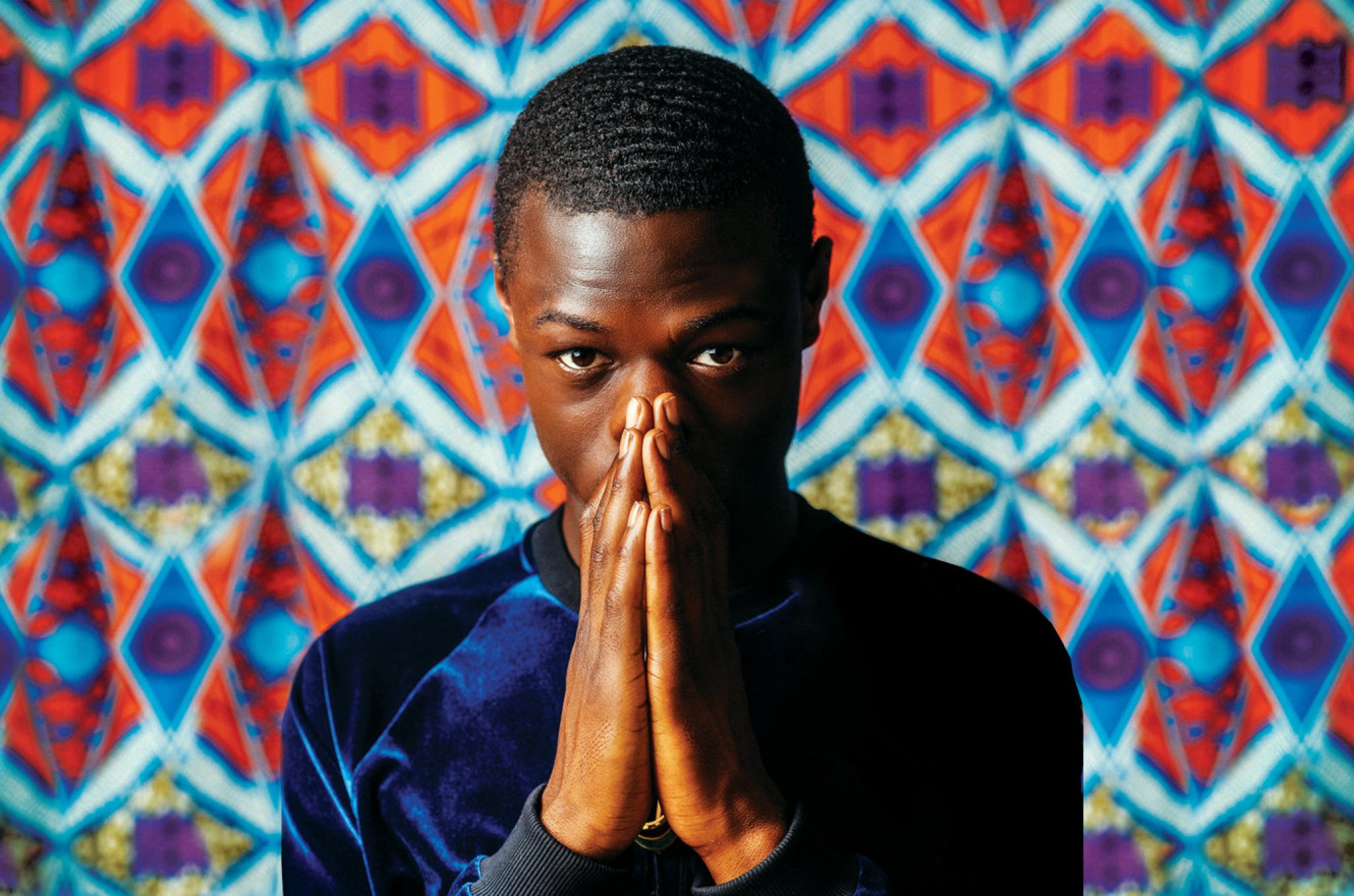 Cover stars
Cover stars
Rap hero: J Hus is the optimistic soundtrack to Britain's turbulent times
His blend of dancehall and Ghanaian Afrobeats has brightened up a bleak period
It might be Tuesday but the vibe in San Antonio is pure Friday night. Inside Soul City it’s strictly urban flavours and the sweet smell of suncream-infused sweat hangs in the air. Following the first ever edition of his #MERKY festival at Ibiza Rocks, Stormzy is celebrating in the VIP. When the grime star leaves in the early hours of Wednesday morning, fans chanting his name surround him.
But in the corner of the club sits someone whose music is just as omnipresent as Stormzy’s right now. His eyes are closed, and as the opening of his recent hit ‘Did You See’ booms through the speakers the already raucous crowd step things up another level. The fact that hardly a soul recognises him might just tell you something about the kind of star J Hus is. The 21-year-old has managed to become one of the most exciting properties in UK music (arguably the most important British rap act since The Streets) while managing to avoid the level of hysteria that surrounds some of his contemporaries.
“Sorry about the mess,” he says as he greets us in his hotel room a few hours earlier. The room, a few minutes’ walk from the Ibiza Rocks main stage, betrays few signs of his personality, just an unmade bed and on the adjacent one, a laptop. Dressed simply in a navy Nike T-shirt and matching shorts, a skull-cap covering his hair, aesthetically J Hus is a 21-year-old everyman. He’s athletic but boyish, a man still growing into the potential of his body. We sit down at a table on the balcony and J Hus sparks a joint, then checks his phone. “I’ve got a girl, innit,” he explains. “When I’m abroad she wants to FaceTime me and all those things. But I don’t like having a phone. I don’t like location, I don’t like the fingerprint thing – all of that makes me nervous.”
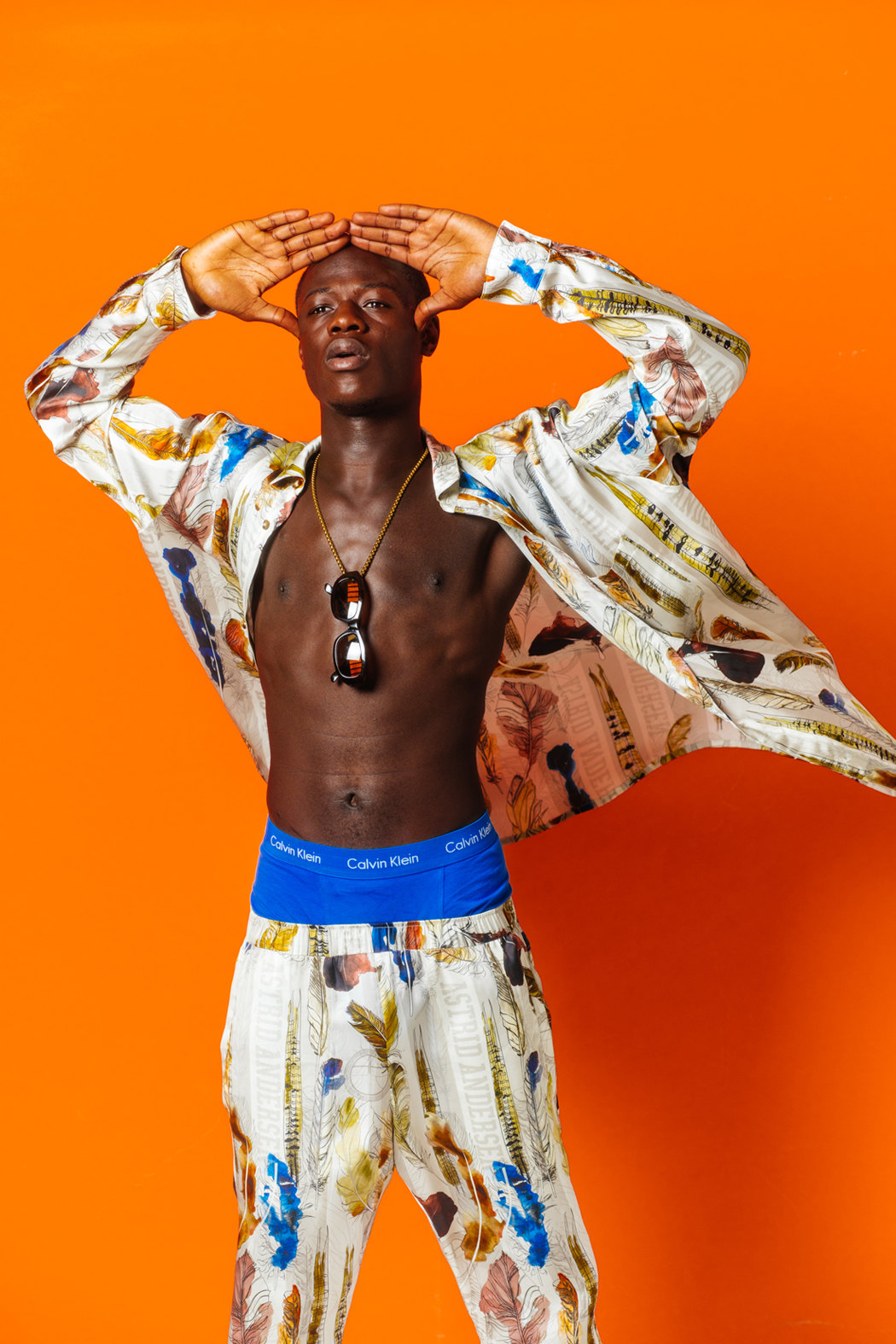
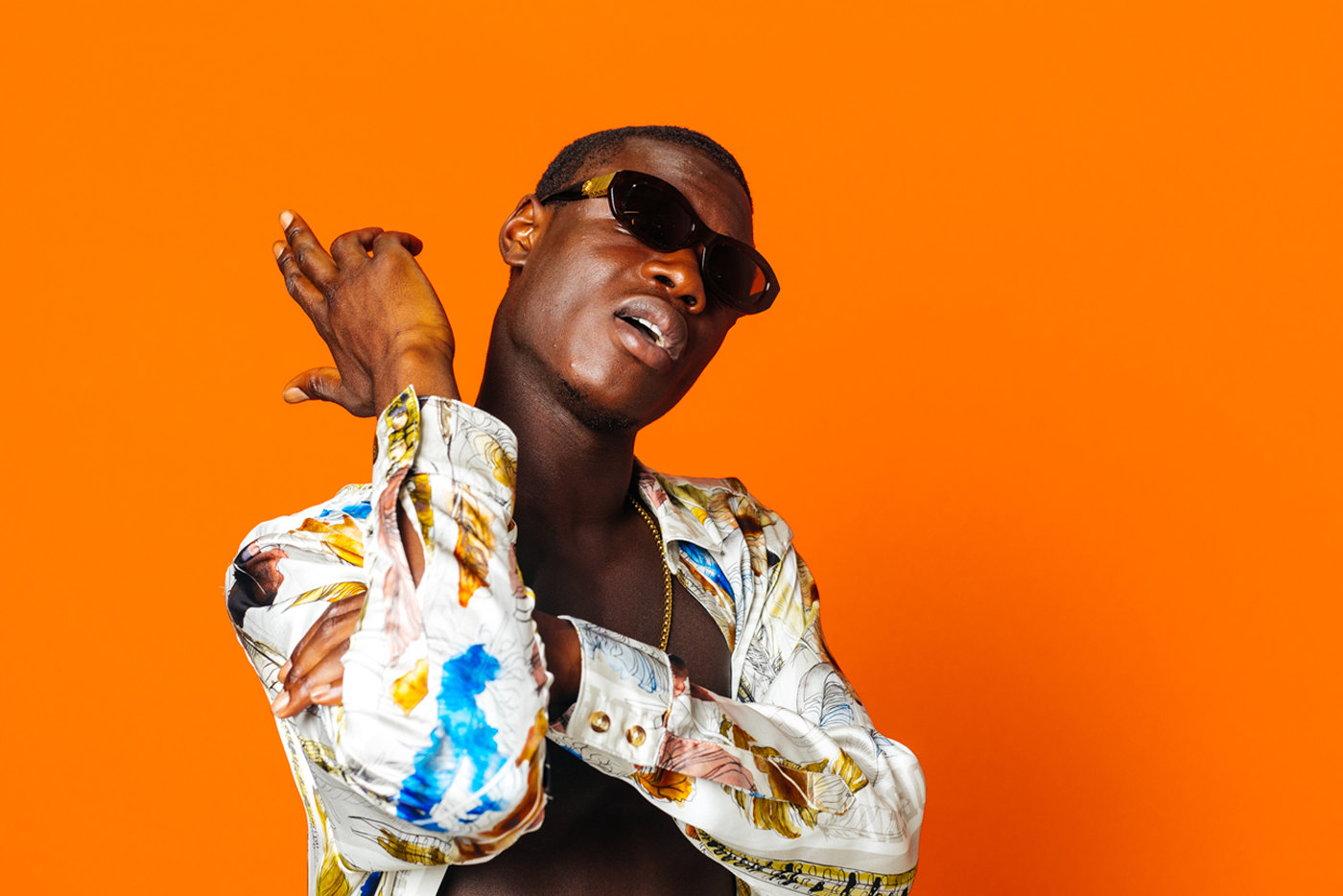
Speaking quietly and answering questions in short, staccato-ending sentences, it’s not immediately clear whether J Hus’ preference for keeping a low profile is a hangover from his hustling days, paranoia born of being stabbed not so long ago, or a reaction to increasing fame. “I’m not really out like that,” he tells us when we ask if he went to any of Ibiza’s famous hotspots the previous night. “Obviously I know the album’s opened doors and that, but I only go out if I need to. I’d rather be in the studio working, planning ways to advance in life. I don’t know where it comes from, but for a long time I’ve always wanted more.”
Even before his Mercury-nominated album dropped, J Hus was showing mainstream potential. 2015’s ‘Lean & Bop’ boasts 10 million views on YouTube, as does 2016’s ‘Friendly’, while his duet with Dave ‘Samantha’ is on 22 million. But it’s ‘Did You See’ that propelled him to the kind of numbers that signify serious crossover appeal, with 32 million YouTube hits and counting.
Made in the months following a stint in prison, his debut album ‘Common Sense’ showcases the rapper’s fierce work ethic across its 17 tracks. With only four features it’s distinctly J Hus’ vision, loosely reflecting the artist’s own life growing up in East London’s Stratford. His lyrics are provocative, graphic and life-affirming, often all in the same verse: ‘I know an armed robber, used to be a shoplifter / Now me and him got beef, and we no longer speak / Still walk his nan across the street’.
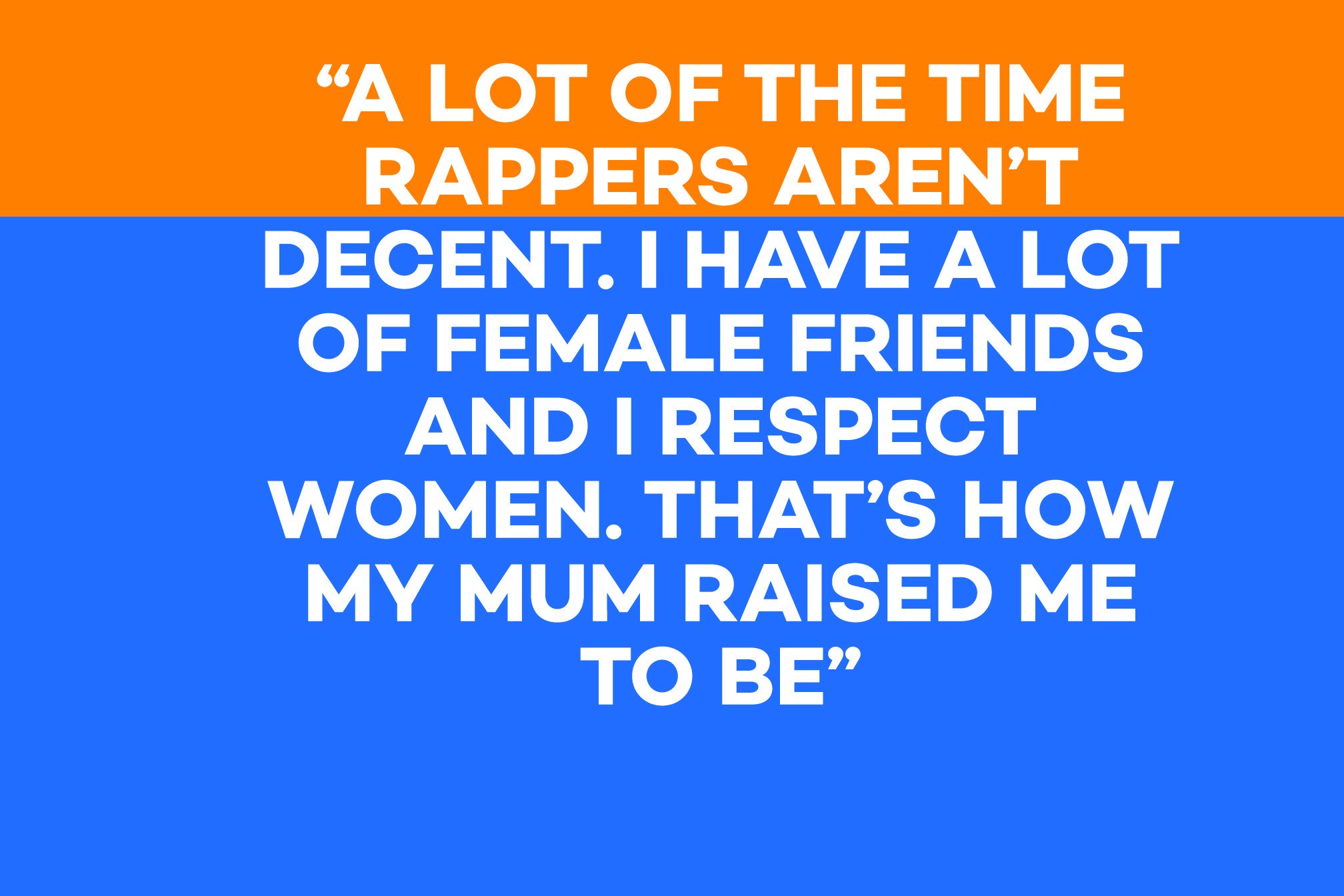
The range of influences on the already silver-selling record are almost bottomless, from jazz to UKG, but the focus is always on J Hus’ voice, an instrument he’s finessed to perfection since showcasing its potential on freestyles back in 2014. A guttural UK flow meets velvety serenading, poetry and posturing, a unique formula that, coupled with lyrics of genuine emotional depth, has turned traditional rap machismo on its head.
This quicksand of moods is reflective of J Hus in the flesh: he’s variously professional and polite, laid back as he laughs at his DJs eavesdropping in the adjacent room, and at times distracted and dismissive. “It’s just London,” he says of his childhood abstractedly. “Obviously every area is slightly different. I could go into detail, but...” he trails off, breaking eye contact. “You know what it is?” he says in a more confiding tone when we come to a conversational impasse; “I’m not really an open person, and I like to be mysterious as well. I feel like, people out there, they know me, but they don’t know me, and I like that. On the album everything I’m talking about is my own experiences, but I’ve never made a song that’s directly about me.”
The hooks are undeniably addictive, but it’s the tracks’ complex layering of naughty schoolboy humour, hood aggression and romantic overtures that makes them relatable, and J Hus’ romantic persona that imbues the songs with the universal appeal of pop music. “You know what it is? With the album I wanted to uplift women,” he explains. “A lot of the time rappers aren’t decent. I have a lot of female friends and I respect women. That’s how my mum raised me to be.” The sexual explicitness of tracks such as ‘Closed Doors’ prevents the album from feeling too saccharine. J Hus continues that balance through his self-image, referring to himself as ‘ugly-sexy’ in lyrics and interviews, so it takes us by surprise when he rejects our assertion that he’s now a bona fide sex symbol. “You reckon?” he replies, before his cheeks crease into a smile. “That’s what I’m going for,” he says.
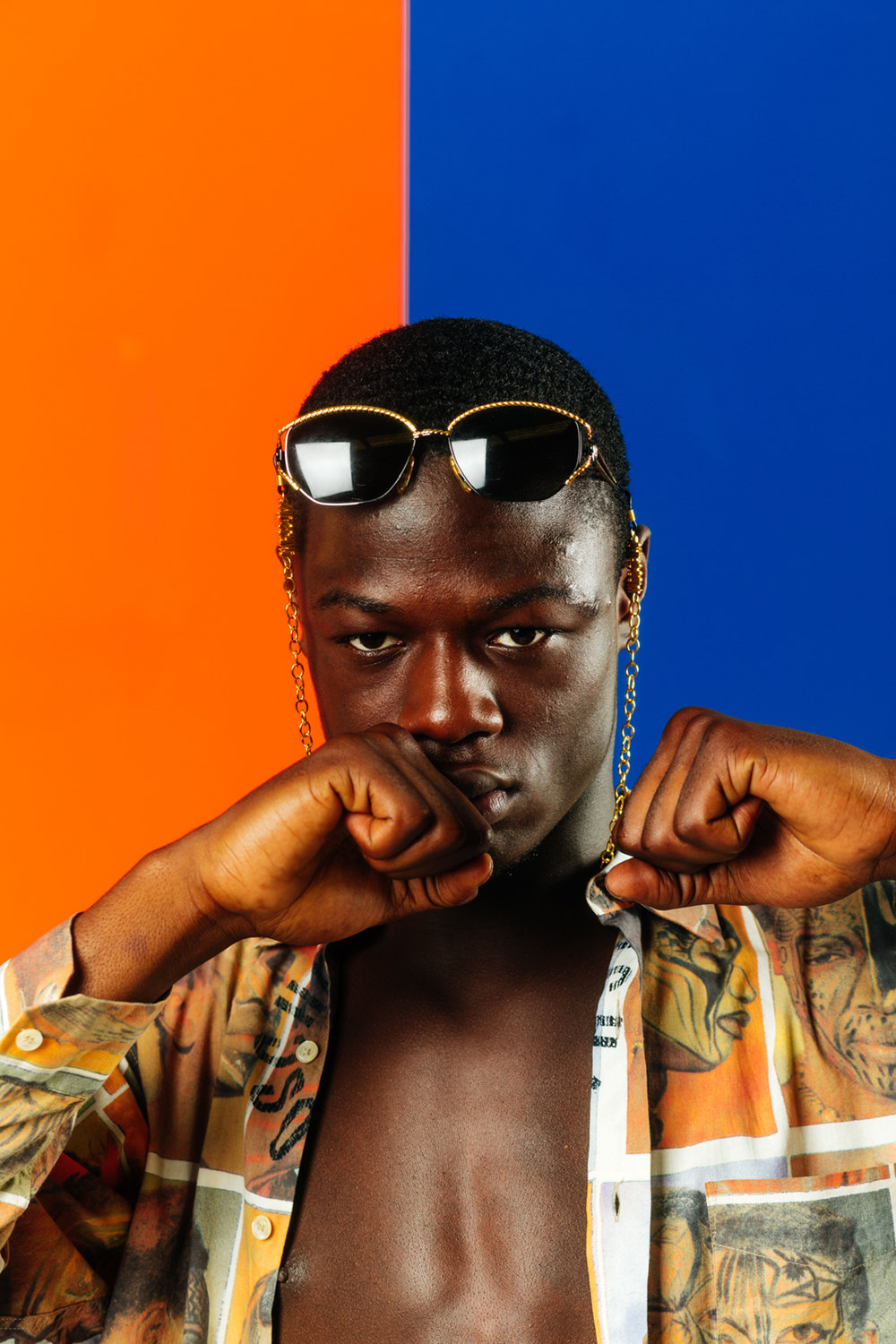
On the subject of love and sex, we ask J Hus what he’s like as a boyfriend. “Soft,” he responds without hesitation. Though he says he’s too young to live with his partner, he stresses his commitment: “I’m a one-lady man, so it’s easy for me to be in a relationship. The only hard part is always being on the move.” With characteristic balance, he’s quick to point out the positives of travelling so much. “Going Ghana was very enjoyable,” he says, recalling his recent trip to Africa. “They were very welcoming to me – it was a spiritual experience. And people recognising me in the street, it’s sick still. Things like that always makes me happy.”
His deadpan demeanour breaks into sudden enthusiasm. “Inspiring kids is cool, but if I inspire the adults then that’s sick,”
he says. “It’s for everyone. I wanted to make it as diverse as possible. Whatever mood you’re in, you’ve got a song on the album for that mood.” The diversity of influence on the record started with J Hus’ mother, who emigrated to the UK from Gambia while in her 20s – she took him to parties full of African music. “We used to go to the hall,” he says. “You’d see all your cousins and have to dance with one of your aunties.” Then came his obsession with American rapper 50 Cent, and later a love for The Streets. “I like that he seems himself, and he says things just like he’s having a conversation,” he says of Mike Skinner. “That’s what I wanna do, but in my own way.” But above the Afrobeats, dancehall, r’n’b and rap accents, anthemic Bieber-style melodies jar against bars characterised by the braggadocio of hustling for a living, sometimes evoking an English version of the Mexican genre narcocorrido. ‘I tour the city in an Addison Lee,’ J Hus croons joyously on ‘Bouff Daddy’, delivering the result of inner city youths’ limited options in an optimistic tone missing from much of grime.
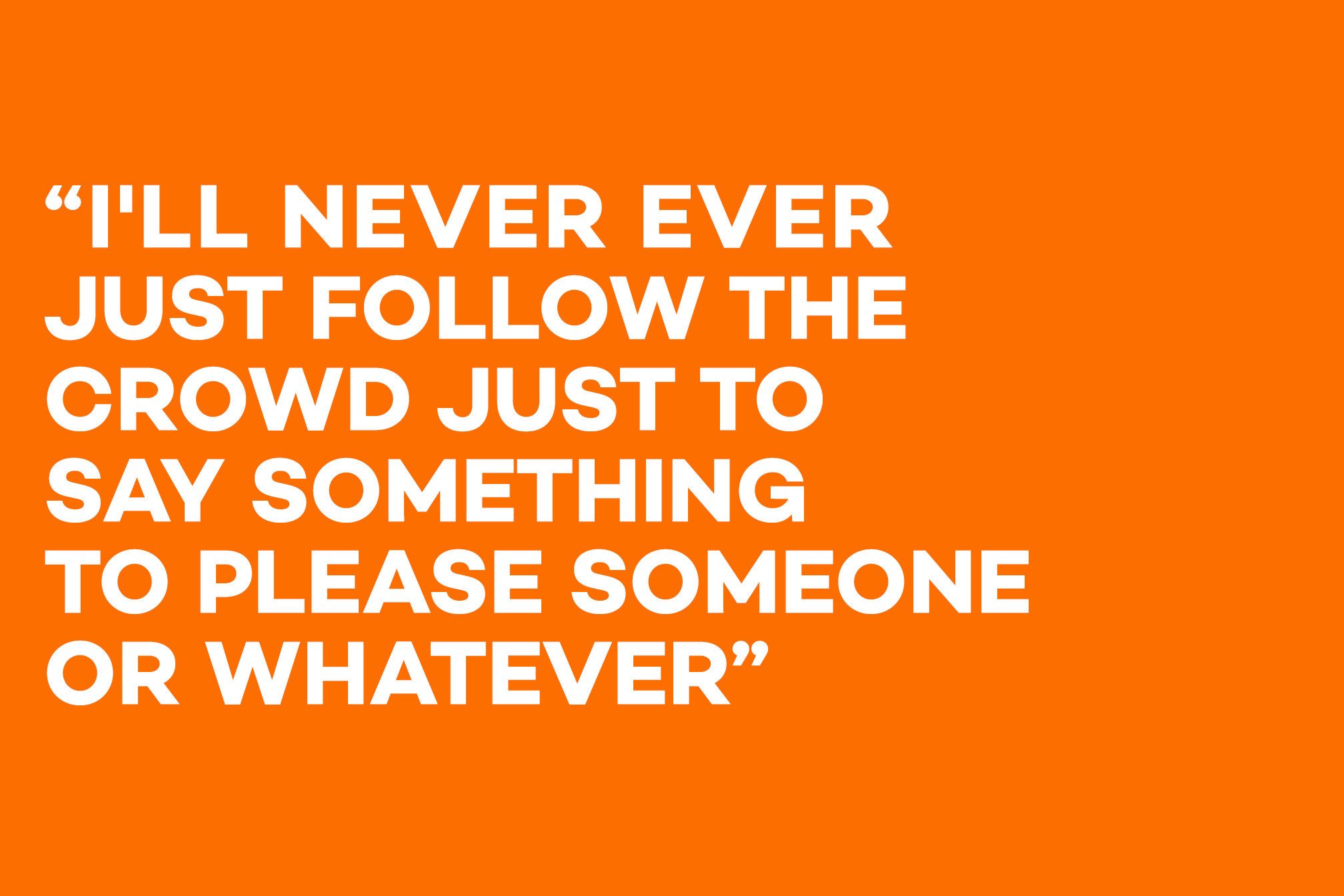
Although J Hus no longer lives in East London, it’s a place that he not only evokes in his music but continues to hold close ties with. “I’m always back and forth there,” he tells us. The connection is evident in the team he surrounds himself with: “My DJs, I went to school with them, my managers are literally my brothers; everyone around me, I grew up with,” he tells us. “Putting people from my area on my projects is a must. I have to do that.”
He’s not particularly engaged in UK politics. “Right now my head is elsewhere,” he says when we ask him about the recent general election. “I’ll never ever just follow the crowd just to say something to please someone or whatever.” It’s an attitude that goes some way to explain his decision to reject the independent route taken by many of his peers in his signing to Black Butter Records a few years back. It’s a sign of how Hus believes his music can reach the masses without changing anything about itself, and by utilising a structure that has traditionally forced urban artists to compromise. “Obviously people always try to say this is this and that is that, but there’ll never be a name for it. It’ll just be J Hus,” he says of his music. “I have my own unique style and I wanna be in my own lane. I wanna reach that level, but still be myself. I wanna get everything out of it that I can, as it doesn’t last for ever. When they don’t wanna hear my voice no more I’ll shut up and do something else.”
It was this absence of ego in the young J Hus that initially impressed the artist’s long-time collaborator, producer Jae5 (who’s also responsible for this month’s mix), with J Hus’ enthusiasm for trying to rap over an eclectic variety of beats forming the basis of their partnership. With Jae5’s own education coming from formative years spent in Ghana, the producer proved the perfect co-pilot for J Hus’ musical travels across The Black Atlantic. It’s a relationship built not just on musical understanding, but real, human connection and loyalty. “I’d still work with him,” J Hus says in reply to what he’d do had the record not been successful. “If it didn’t do as well I’d look deep into it, see what was wrong with it. Me and Jae5 would talk about it and make a better one next time.”
Jae isn’t in Ibiza, but four of the artists performing at Merky Festival at Ibiza Rocks are J Hus collaborators: Stormzy, Mist, MoStack and Dave. Hus and Dave made ‘Samantha’ on the first day they met at Jae’s studio. “He’s just different – one of a kind really,” Dave tells us later. “He’s special, a crazy-hungry for it type of guy, and he’s just an amazing musician.”
Unlike in the UK, where urban artists’ tours are selling out at record speed and superclubs such as The Warehouse Project are booking them consistently, it’s the faces of Pete Tong, Fatboy Slim, Paris Hilton and Hannah Wants that beam down from billboards lining the road out of Ibiza airport rather than the grime and hip hop stars of #MERKY.
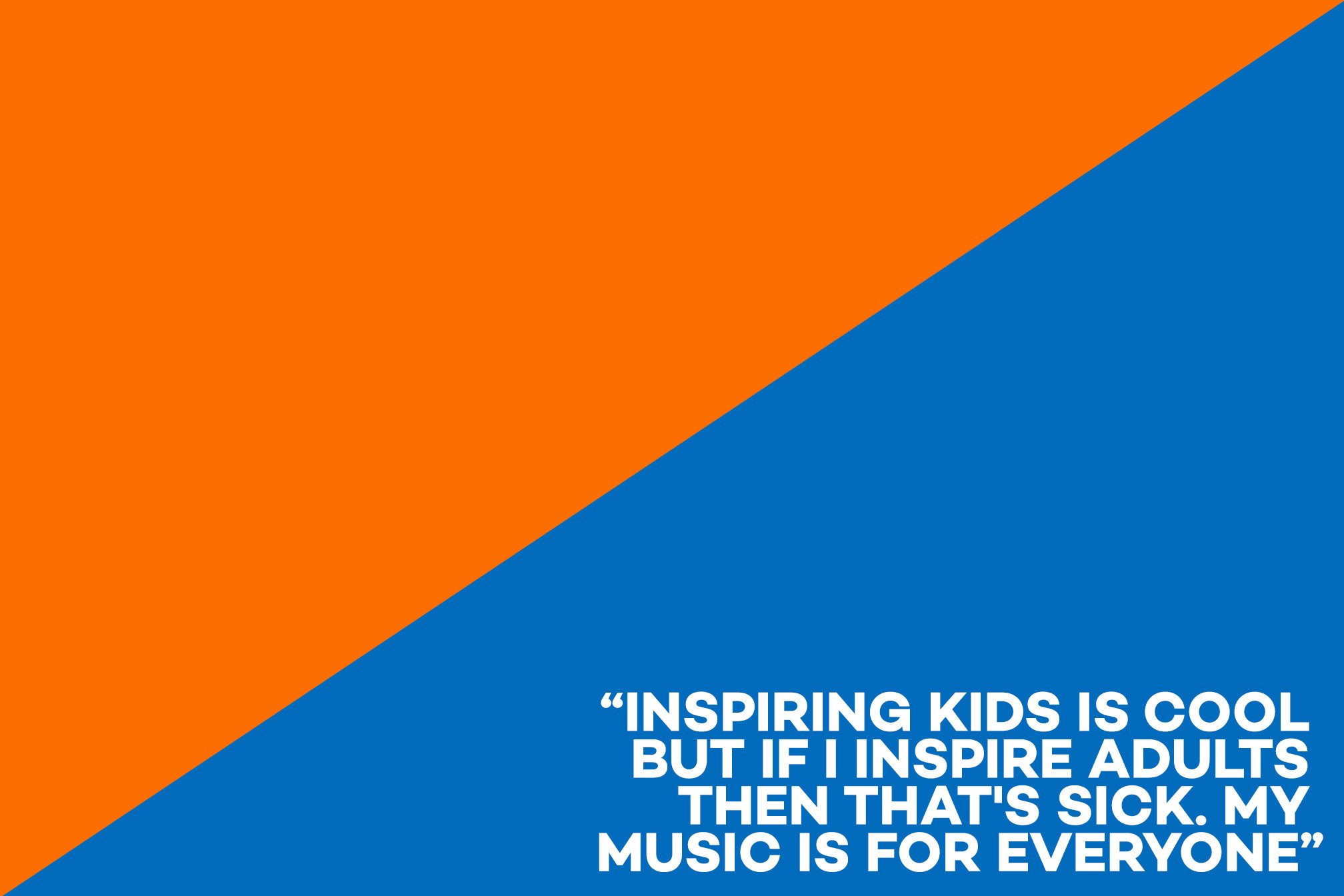
The festival takes place inside the giant courtyard of Ibiza Rocks Hotel, with guests able to watch from private balconies overlooking the two stages. But on the day, the 2,000-plus crowd starts to gather downstairs by the pool. While the first guests fit the Brits abroad stereotype of sunburnt shoulders, later on the audience is a colourful sea of eye-catching outfits paying homage to carnival fashions. With the two stages next to each other, there’s no need for trekking and as the event gets underway in the late afternoon, the mood is relaxed and boozy. As Dave points out during his performance, everyone is on their well-deserved holidays.
Backstage, J Hus is spitting into a makeshift mic stand in one of the dressing rooms, flanked by fellow artists and their respective entourages. In the middle of the mayhem, the event’s host, Beats 1 presenter Julie Adenuga, is resting in between introducing artists. We ask her about Hus. “I was enamoured by his aura and charisma,” she tells us. “I guess deep down I always want the mandem to be real about who they are, but have the drive to want to do better and learn from their pasts – and most importantly build empires with their family and friends. Hus is all of that, and much, much more.”
Minutes later, J Hus enters the stage accompanied by two hype men. As his favourite track ‘Plottin’ is reloaded, he amps up the energy, channelling his pre-music interest in acting through the broad strokes of his whole body. He’s a natural showman, making even the choreographed dance moves compelling rather than cheesy. The crowd go wild for ‘Fisherman’, with a limping Mist, recovering from a bike accident, and an excited MoStack bouncing across the stage to join Hus. It’s a special moment: rarely are these artists all together at a festival intimate enough to allow for jumping on each other’s sets. With the audience singing every word, a shirtless J Hus pauses, crosses his arms and take it all in. He sails through ‘Lean & Bop’ and the crowd again threaten to exceed the volume of the backing track as ‘Dem Boy Paigon’ is reloaded too. In contrast to previous acts – and just like his album – J Hus’ performance never dips. The only thing going down right now is the sun.
The Mercury-nominated ‘Common Sense’ is out now on Black Butter
Kamila Rymajdo is a freelance journalist, follow her on Twitter
This feature is from the September issue of Mixmag
